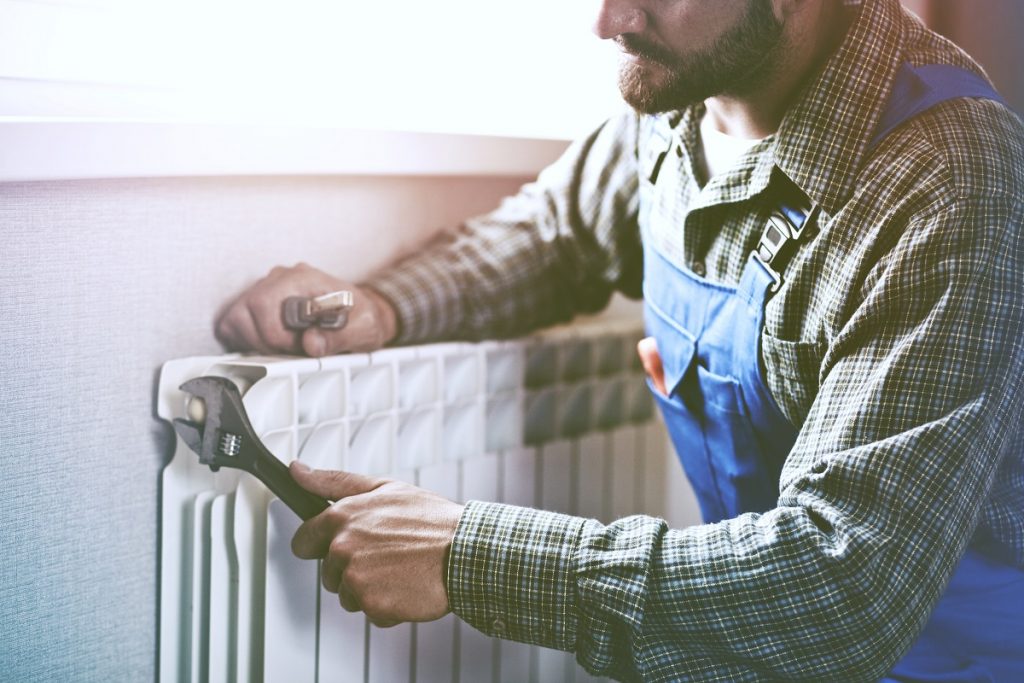- Regularly clean and maintain your heating system to prevent potential fire hazards and improve efficiency.
- Seal drafts and insulate doors, windows, and attics for better warmth and energy efficiency during winter.
- Regularly replace air filters to improve your heating system’s efficiency and indoor air quality.
- Repair damages to your heating system promptly with professional furnace repair services for optimal winter performance.
- Winterize your plumbing by insulating pipes and draining outdoor faucets to avoid frozen and burst pipes.
As the cold season approaches, ensuring your home is well-maintained is essential to prevent potential problems. After all, there’s nothing more frustrating than having your heating system break down in the middle of a cold winter day.
Home maintenance is essential in the cold season to help keep your family safe and comfortable. One of the primary reasons for this is that your heating system will be in use, which can lead to several issues if not appropriately maintained. A poorly maintained heating system can cause a fire hazard or emit carbon monoxide, leading to health problems.
This blog will highlight the importance of home maintenance in the cold season and provide some tips to help you prepare your home for the winter.
Preparing Your Heating System
To avoid any potential issues with your heating system, it’s essential to take some time to prepare it for the cold season. This includes:
Checking and Cleaning Furnace or Heater
Your furnace or heater may collect dust and other debris throughout the year, which can cause damage to the components and reduce efficiency. It would be best to get your furnace or heater checked and cleaned by a professional once a year to ensure it functions optimally.
Employing the Help of a Reliable Furnace Repair
If you notice any damages to your furnace or heater, such as leaks or unusual noises, hiring a reliable furnace repair company is vital. Professional repair services will ensure your heating system functions safely and efficiently throughout the winter.
Replacing Air Filters
Dirty air filters can reduce the efficiency of your heating system and cause it to work harder, leading to increased utility bills. Replacing air filters once a month can help prevent these issues and improve indoor air quality.
Testing Thermostat Functionality
It’s crucial to ensure your thermostat functions correctly throughout the winter season. Testing thermostat functionality involves checking the temperature reading accuracy and switching between heating and cooling modes to ensure that your home is comfortable.

Ensuring Insulation and Weatherproofing
One of the most important things you can do for your home in the cold season is to ensure proper insulation and weatherproofing. This means you must provide your home is properly sealed against the elements.
Checking and Sealing Drafts
You can use a simple trick to check for drafts: hold a candle or lighter near any potential drafts and watch if the flame flickers or moves. If it does, that means there is a draft. To seal drafts, you can use weatherstripping or caulking.
Insulating Doors and Windows
In addition to sealing drafts, it’s crucial to ensure that your doors and windows are properly insulated. This might mean adding additional insulation around doors and windows or even replacing them entirely if they’re particularly old or leaky.
While these upgrades may seem costly, they can make a big difference in your home’s warmth and energy efficiency.
Assessing Attic Insulation
Don’t forget to assess your attic insulation in the cold season. This can be a sneaky area where heat loss occurs, so ensuring it’s adequately insulated is essential. Check if your attic insulation is at least 10-14 inches deep; add additional layers to ensure it’s up to par.
Winterizing Plumbing and Pipes
In addition to ensuring proper insulation and sealing drafts, it’s necessary to winterize your plumbing and pipes in the cold season. Frozen pipes are a significant risk in the winter and can cause major damage to your home.
Insulating Pipes to Prevent Freezing
One crucial step you can take to prevent frozen pipes is to insulate your pipes. This can be done using insulation sleeves or wrapping your pipes in heat tape. Be sure to pay attention to any outdoor pipes or pipes that are near exterior walls, as these may be more prone to freezing.
Draining Outdoor Faucets and Hoses
Drain outdoor faucets, and hoses are another critical step in winterizing your plumbing. This helps prevent water from getting trapped in your pipes and freezing, which can cause them to burst.
Keeping Indoor Faucets Dripping
One sneaky trick to prevent frozen pipes is to keep your indoor faucets dripping. This keeps the water moving through your pipes and helps prevent freezing. While it may seem counterintuitive to waste water in this way, it’s a small price to pay for the peace of mind that comes with preventing a major home disaster.

Home maintenance is essential in the cold season to keep your family safe and comfortable.
By preparing your heating system, including checking and cleaning your furnace or heater, employing the help of a reliable furnace repair company for damages, replacing air filters, and testing thermostat functionality, you can avoid potential hazards and unnecessary expenses.
Ensure that your home is ready for winter so that you can enjoy a warm, cozy, and safe environment throughout the cold months.

